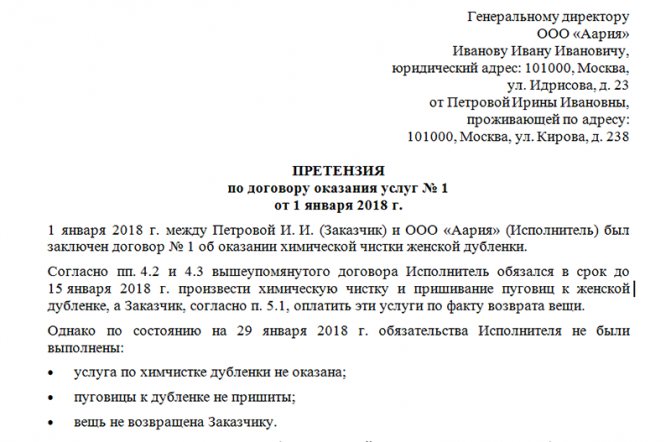Freedom of contract should not lead to release from liability for culpable failure to fulfill obligations
The parties are free to enter into contracts; they independently choose which contract to enter into, with whom, at what price and on what conditions. Some participants in civil relations abuse their rights, allowing culpable failure to fulfill obligations.
The Supreme Court clarified that freedom of contract should not upset the balance of rights and property interests of contracting parties. The parties may limit their liability for failure to fulfill obligations under the contract , but the release of the customer from liability for guilty actions is void.
The Supreme Court's conclusion can be applied to other types of contracts.
Fable of the case
The contractors entered into a contract for the maintenance of fire alarm systems. The work was carried out monthly according to the schedule approved by the customer.
The customer was obliged to pay for the services provided on the basis of acts of completion and invoices.
The customer did not pay for most of the work performed by the contractor.
The contractor applied to the arbitration court to recover the cost of unpaid services and interest under Article 395 of the Civil Code of the Russian Federation.
The court of first instance collected the principal debt from the customer, but refused to collect interest.
Do you need legal assistance regarding a contract?
The contract stated that the contractor does not have the right to impose penalties on the customer for late payment for services provided. Referring to the principle of freedom of contract, the court decided that the parties did not agree on the responsibility of the customer.
The courts of appeal and cassation upheld the decision. The contractor appealed the court decisions to the Supreme Court.
Main reasons for filing a claim
Article 132 of the Code of Civil Procedure of the Russian Federation states that the parties to a civil dispute, when filing a lawsuit, are required to attach evidence that they complied with the claim procedure for resolving the conflict. If they are missing, the court will leave the application without consideration.
Writing a letter of claim about non-compliance with the terms of the contract, a sample of which is presented in the article, is mandatory if:
- A contract concluded between individuals or legal entities stipulates that before going to court, the parties must try a peaceful, claim-based method of resolving any disagreements that have arisen.
- The need to write a claim is provided for by law. For example, disputes regarding the transportation of goods, disagreements with cellular operators, etc. must be resolved in this manner.
According to 44-FZ on state and municipal procurement, customers in state support transactions have the right to demand that the party that violated its obligations, refusing to complete work on time, pay penalties and fines. According to the Federal Law, to claim them, a claim is drawn up, which in the future may be the basis for filing a lawsuit.
This is the one who violates the terms of the contract and does not comply with the deadlines for completing the work. The full name of the citizen is indicated if he acts as an individual, or the name of the general director of the organization.
The full name of the author of the document, permanent registration address, telephone number or mailbox for communication are indicated.
We invite you to read: Step-by-step instructions for filling out form p14001 in 2021
“Pre-trial claim” is written on a new line.
The details of the document on the basis of which the obligations of the parties arose are written down.
For example, if a claim is made under a work contract, it is indicated that the contractor did not meet the deadlines allotted for completing the work. Examples of official letters for different situations can be found on the Internet.
- Requirements of the author-compiler
The deadlines for eliminating the violations are indicated, upon which the results of the completed work are expected to be provided. If a complaint is written to a store, it may indicate the need to replace a low-quality product or carry out repairs under warranty.
The document indicates within what time frame the author wishes to receive a written response. It contains an indication that if the conciliation procedures are ineffective, the drafter will file a claim in court.
You can draw up an official letter to the counterparty based on a sample complaint about non-compliance with the terms of the contract. This is the fastest and most budget option. If a considerable amount of money is at stake, it is advisable to seek the help of an experienced lawyer.
Most often, claims under a contract are made for several reasons:
- violation of deadlines for fulfilling obligations;
- improper performance of work;
- unilateral increase in the cost of work;
- refusal to pay penalties and fines in cases established by the contract;
- non-compensation for losses caused, etc.
There are no single uniform forms for both contracts and claims. This means that claims can be made in any form. True, at the same time, in their structure and form they must comply with the standards of office work, and in content and text - with the rules of the Russian language.
When making a claim under a contract, you must always include the following information:
- name of the company on behalf of which it is written
- name of the organization to which it is sent
- addresses of both parties.
Also, the document must be titled and a reference to the main agreement must be made (entering the number and date of its preparation in the form).
In the descriptive part, you must indicate the essence of the claim, including the violated clauses and terms of the contract. If any additional papers, photo and video evidence of violations are attached to the claim, they must also be indicated in the document as a separate item.
Then you should summarize all of the above - here it is recommended not only to include your demands and set a deadline for their fulfillment, but also to warn the counterparty that in case of refusal to fulfill contractual obligations, the interested party reserves the right to go to court (as practice shows, Such a threat turns out to be effective in most cases).
What the Supreme Court decided
The Supreme Court overturned the decision in part and sent the case for a new trial.
The Supreme Court decided that any violation of its obligations under the contract should lead to adverse consequences for the debtor. In case of improper performance of a monetary obligation, a contractual penalty is collected, and here the parties are free to determine its amount. If the contract specifies fines and penalties, then interest under Art. 395 of the Civil Code are not subject to recovery. But if a contractual penalty is not provided for, then the measure of the debtor’s liability is interest on the use of someone else’s money.
The customer cannot have absolute freedom when defining the terms of his responsibility in the contract; the interests of the contractor must also be taken into account, since the parties in civil law relations are equal. Otherwise, a situation arises when the contractor completes the work on time, provides services, but the customer does not pay within the period expected by the contractor according to the contract and does not bear any responsibility for this. That is, there is a culpable failure to fulfill obligations.
Letter of claim for non-compliance with the terms of the contract: general provisions and sample claim
The concept of obligation is given in Art. 307 of the Civil Code of the Russian Federation and is considered as a situation in which a party, called the debtor, undertakes to the second party (creditor) to perform certain actions or, conversely, not to perform actions agreed upon in advance. The obligations of the debtor correspond to the right of the creditor to demand its fulfillment. The article under consideration does not provide an exhaustive list of situations in which obligations arise due to their diversity.
The Civil Code of the Russian Federation indicates the need for the parties to behave in good faith towards each other, provide the necessary assistance to fulfill the obligation, and also provide the necessary information (clause 3 of Article 307 of the Civil Code of the Russian Federation).
The essence of the obligation itself is:
- In establishing relationships between individuals.
- Obligation of one party to an emerging obligation to perform certain behavior under the threat of applying civil liability measures (Article 396 of the Civil Code of the Russian Federation), in other words, establishing liability for its failure to fulfill it.
The main criterion for the occurrence of obligations is the basis for their occurrence, according to which it is customary to divide them into 2 large groups:
- Arising from the execution (non-execution) of contracts, in other words, contractual.
- Non-contractual (law enforcement).
Based on the grounds for the occurrence of obligations, there are:
- arising from contracts and other transactions;
- appeared as a result of unlawful actions;
- arising as a result of the occurrence of legal facts.

Depending on the civil legal status of the parties to the occurrence of the obligation:
- arising during their execution by parties to entrepreneurial activity;
- arising with the participation of citizen-consumers.
According to the relationship between the rights and obligations that have arisen:
- simple - those in which the parties are bound by only 1 obligation, for example when borrowing;
- complex, that is, those in which there are more rights and responsibilities, for example, when delivering products.
By definition of execution:
- alternative, that is, those in which the debtor must perform 1 or several actions (Article 308.1 of the Civil Code of the Russian Federation);
- optional, that is, those in which a party can replace the main performance with another (Article 308.2 of the Civil Code of the Russian Federation).
By importance:
- basic;
- additional, that is, those that ensure the fulfillment of the main obligation.
According to the subjects of fulfillment of the obligation, they are usually divided into the following groups and subgroups:
- With multiple persons:
- equity (Article 321 of the Civil Code of the Russian Federation);
- solidary (Article 322 of the Civil Code of the Russian Federation);
- subsidiary (Article 399 of the Civil Code of the Russian Federation).
- With the participation of third parties:
- recourse, that is, those in which responsibilities are transferred to another person (clause 2 of Article 325 of the Civil Code of the Russian Federation);
- obligation in favor of a third party (Article 430 of the Civil Code of the Russian Federation);
- duties performed by third parties (Article 308 of the Civil Code of the Russian Federation).
- When a change of persons occurs:
- assignment (Article 382 of the Civil Code of the Russian Federation);
- subrogation (Article 965 of the Civil Code of the Russian Federation);
- transfer of debt (Article 391 of the Civil Code of the Russian Federation).
A significant violation of the terms of the contract is usually understood as violations that may entail causing significant damage to the other party or even contribute to the deprivation of what it had the right to count on when concluding the contract (Clause 2 of Article 450 of the Civil Code of the Russian Federation).
The essential nature of the violation in this case does not lie in the amount of damage caused, but rather in the relationship between what the party could expect from the fulfillment of the obligation and what it lost as a result of its non-fulfillment.
We suggest you read: Lost the warranty card: what to do?
In other words, when the courts consider the issue of the materiality of violations of the terms of the contract, materials will be examined that prove a significant difference between what the party expected when signing the contract and what was actually obtained (decision of the Arbitration Court of the Sverdlovsk Region dated September 8, 2016 in case No. A60-30641/2016).
IMPORTANT! Civil liability is entailed not only by significant violations, but also by any violations that cause loss or harm to the counterparty.
Failure to comply with the terms of the concluded agreement by any of the parties is the basis for sending a demand for the fulfillment of such conditions or for compensation for losses, payment of a penalty, termination of the agreement, etc.
The complaint should indicate the demands made and the violated clauses of the agreement on which they are based. The legislation does not contain mandatory requirements for filing a claim, but it must be in writing to prove the fact of its preparation.
The claim is drawn up in any form and may include the following information:
- information about the parties to the contract, addresses, telephone numbers and other information that allows them to be identified (in the header of the document);
- the basis for filing a claim (indication of contract data or other information indicating its conclusion);
- information about the fulfilled obligations under the contract of the claimant (for example, delivery of goods, making an advance payment, etc.);
- data on unfulfilled obligations (failure to fulfill in part or in full);
- an indication of the obligation of proper execution, as well as requirements for payment of penalties, losses, etc., provided for by the contract or law;
- negative consequences and sanctions in case of failure to fulfill a claim voluntarily;
- possible methods of execution and deadlines;
- signature of the compiler and transcript.
A claim for non-compliance with the terms of the contract must be accompanied by documents on which the claim is based.

Thus, the claim procedure involves notifying the counterparty of the existence of unfulfilled obligations and providing the opportunity to resolve the dispute without incurring additional costs, including payment of state fees for going to court, representation expenses or penalties.
Losses are a kind of maximum measure of liability for failure to comply with the terms of the contract under the Civil Code of the Russian Federation. If a significant violation of the terms of the contract under the Civil Code of the Russian Federation entails the need to sign a similar contract, then the party whose right was violated by such non-fulfillment receives the right to demand compensation from the debtor for the difference between the price under the original contract and the one concluded subsequently (Article 393.1
Civil Code of the Russian Federation, resolution of the plenum of the Supreme Court of the Russian Federation dated March 24, 2016 No. 7). Other measures of liability In addition to the right to claim compensation for losses, in case of violation of the terms of the contract, the Civil Code of the Russian Federation provides for other measures of liability, in particular, such as:
- Penalty (Article
330 of the Civil Code of the Russian Federation) in other words, a fine (set in money) or a penalty (calculated as a percentage). It is subject to accrual if one of the parties violates the terms of the agreement reached.
The completed state registration of contracts and other transactions is certified by making a special registration inscription on the document expressing the content of the transaction. Agreements and other transactions are one of the grounds for the emergence, transfer, limitation (encumbrance) and termination of rights to real estate.
In a number of cases, the Civil Code provides for state registration of real rights to real estate. Thus, Article 551 of the Civil Code contains a requirement for such registration of the transfer of ownership of real estate to the buyer. Failure to comply with the form of the contract and state registration of the contract can cause various consequences.
- joint and several, when the right to choose from which of several debtors for one debt to collect this debt belongs to the creditor;
- subsidiary, which implies the creditor’s right to appeal to the subsidiary debtor if it is impossible to collect the debt from the main one.
Liability (losses) Ch. 25 of the Civil Code of the Russian Federation is devoted to liability for failure to fulfill obligations under a contract. The universal measure of liability used in case of failure to fulfill the terms of the contract is compensation by the guilty party for losses incurred (Art.
393 of the Civil Code of the Russian Federation). The procedure for determining losses is regulated by Art.

The written form of the contract involves not only the drawing up of one document signed by the parties, but also the exchange of documents through the use of postal, telegraph, teletype, telephone, electronic or other communications that make it possible to reliably establish that the document comes from a party to the contract (clause 2 of Article 434 GK). This creates the possibility of promptly concluding an agreement.
Info
But at the same time it must be contained in a form accessible to perception. The agreement is signed by a person authorized to conclude it.
Comments
In this definition, the Supreme Court made the most important conclusions that, despite the freedom of contract, a debtor who intentionally violated his own obligations cannot be completely released from liability:
- The parties to civil law relations are free to enter into contracts; they themselves determine the type of contract and its terms, but this freedom should not grossly upset the balance of interests of the parties.
- The parties may provide for the release of the customer from liability for unintentional violation of their obligations. But in this case, it is the customer who must prove that he has taken measures to fulfill his obligations. Full release of the customer from liability for deliberate non-payment for work performed by the contractor will lead to a violation of the contractor’s interests, and this is unacceptable, since it violates the principle of equality of parties.
- If the customer is completely released from liability, then in this case the condition of releasing the customer from liability for late payment for work should be considered void. This condition will remain in effect if it is interpreted restrictively and does not apply to willful breach of obligations. But then it is the customer who must prove the absence of his guilt.
(Determination of the Supreme Court of the Russian Federation dated July 14, 2020 in case A65-11516/2019)
Legal assistance when applying to the Supreme Court
Law Firm "Legal Guarantee" has experience in drafting cassation appeals to the Supreme Court of the Russian Federation.
About the features and procedure for drawing up a cassation appeal, read the article “Cassation appeal to the Supreme Court: how to draw up.”










